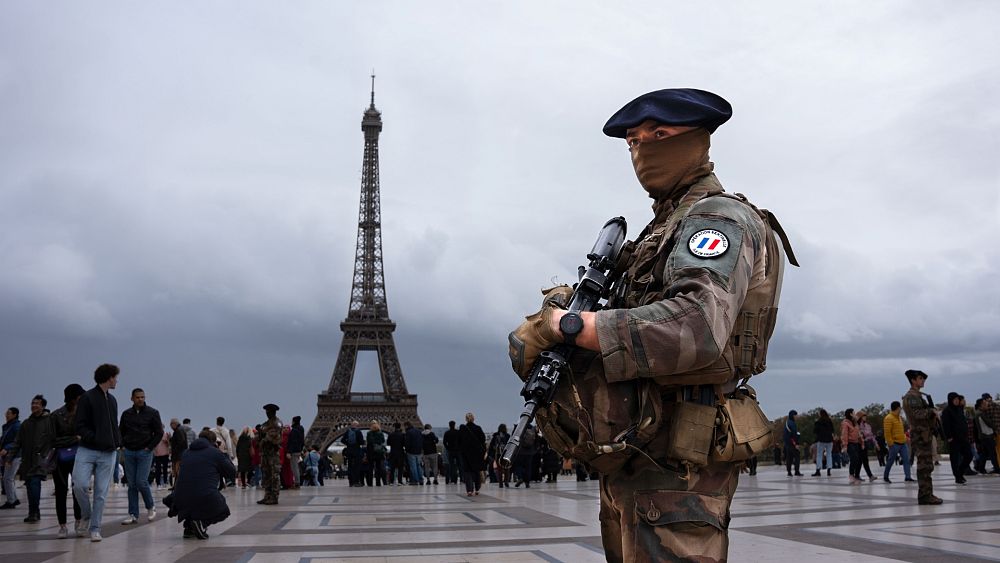France has been at the highest level of security alert since October 13 and has seen a wave of false bomb threats and security alerts.
With the start of the school holidays and the final matches of the Rugby World Cup, thousands of people are planning a trip to France in the coming days.
But a wave of false bomb threats at tourist sites and airport evacuations has plagued the country, causing disruption to travelers over the past week.
With a high level of safety warning should you worry about traveling? Here is the picture of the situation in France.
Contenuti
ToggleWhy is France on high alert?
France has been on the highest level of security alert – Urgence ATTATAT – since October 13 after a 20-year-old man stabbed a teacher to death in the northern French city of Arras.
Probably the most visible impact of this will be a growing number of soldiers on the streets. Even if so far there have been no major disruptions to the public transport network, increased vigilance could also mean train delays or the suspension of subway lines due to “suspicious parcels”.
“Transport (networks) have been places that have seen heavy victims of attacks in the history of our country and in Europe,” French Transport Minister Clément Beaune told France Inter on Sunday (October 22).
As well as the increased risk, there were “people playing with fear”, he said, referring to the wave of false bomb scares that hit transport networks, schools and cultural centers in the last week.
So far the threats have turned out to be false and no country's foreign offices have advised against traveling to France.
Given the increased threat level, however, travelers are being warned that evacuating crowded places such as airports, train stations and tourist attractions could take place.
The Palace of Versailles outside Paris was evacuated for safety reasons at midday on Sunday, for the seventh time in the last eight days, and reopened two hours later after checks were carried out, a spokeswoman said.
France strengthens security on trains and planes
France is tightening security at airports around the capital and on trains following the spate of fake bombs, Beaune said on Sunday.
Security patrols a Paris the airports will be increased by 40% and the staff of the national railway company SNCF will be strengthened by 20%.
There will also be additional police patrols at train stations, Beaune added.
Police also announced enhanced security operations for the final two matches of the Rugby World Cup scheduled at the Stade de France in Paris on 27 and 28 October.
Fans are advised to arrive well in advance of the 9pm kick-off time, to allow security checks to be carried out both outside the stadium and at the gate.
Where do false threats come from?
There have been some since last Wednesday 70 hoax bombs at French airportsBeaune said.
Many led to evacuations and flight disruptions at airports such as Marseille, Toulouse and dozens of regional hubs resulting in at least 130 canceled flights.
Beaune added that almost all of these alerts were sent from the same Swiss email address.
“Since Wednesday, the same email address, which is located outside the European Union, in Switzerland, has almost always been used,” he explained.
False alarms are generally punishable by two years in prison and a fine of 30,000 euros. The penalty can reach three years in prison and a fine of 45,000 euros if the report includes a threat.
Beaune told France Inter that the hoaxes are not “little pranks, they are serious crimes” and will be investigated.
Image:Getty Images







